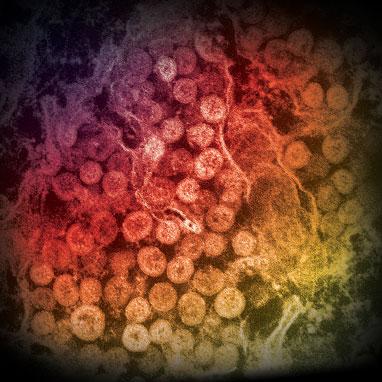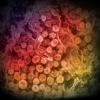Saudi Arabia added three more to its list of MERS-CoV (Middle East respiratory syndrome coronavirus) cases today, suggesting that the springtime increase in MERS activity is not yet ready to fade away, though the pace has slowed.
Also today, Dutch scientists filled in more details about the Netherlands' first two MERS cases in a Eurosurveillance report, which says the virus in the two patients is a close match to one of the two recent cases in the United States, for unknown reasons.
Three cases in three cities
The three new Saudi cases involve men in Riyadh, Medina, and Hafr al-Batin, all of them in stable condition, according to the Saudi Ministry of Health (MOH). Riyadh and Medina have been MERS hot spots this spring, but Hafr al-Batin has had very few cases this year.
The three patients range from 44 to 71 years old, with symptom onset dates from May 18 to 22. One of them, a 44-year-old in Medina, is said to have had prior contact with another MERS patient; no other information on the patients' exposures was provided.
The MOH also announced the death of a previously reported case-patient, an 11-year-old boy who had a brain tumor.
The latest developments increased Saudi Arabia MERS-CoV numbers to 568 cases and 187 deaths.
Dutch details
The Dutch report covers the Netherlands' first two MERS cases, in a 70-year-old man and his 73-year-old sister, who tested positive for the virus after a pilgrimage to Saudi Arabia in late April and early May. Their cases were announced on May 14 and 15.
The two were among a group of 31 people who went on the pilgrimage. Before he got sick, the man was exposed to coughing patients in a hospital waiting room where he took his son, the report notes. On May 1 the man fell ill with nonrespiratory symtpoms, and he was seen at two Saudi hospitals before he returned home on May 10 and was hospitalized.
The man's sister, who shared hotel rooms with him and his son, also got sick while in Saudi Arabia, on May 5, but did not seek medical care there. Her case was identified through the contact investigation triggered by her brother's illness. MERS-CoV RNA was found in throat swabs, serum, and stool samples from both patients.
Partial genome sequencing showed that the two patients' viruses were almost identical, but different from isolates from a recent hospital MERS cluster in Jeddah, Saudi Arabia. Surprisingly, the sequences were close to those from the first US MERS case, in a health professional who works in Riyadh and was diagnosed after he traveled to Indiana on Apr 24 to visit relatives, the report says.
The authors call the similarity remarkable because the patients didn't visit the same places in Saudi Arabia. In exchanging information with the US Centers for Disease Control and Prevention, they couldn't find any clues about common exposures of the Dutch and US case-patients.
"The current, limited scientific information does not support any conclusion on the meaning of this genetic resemblance, knowing that multiple lineages of the virus can be found in camels and people," the report says.
In other details, the report says the two patients were not among 12 members of their group who came across a camel herd on May 3 and drank raw camel milk that was offered them. Camels are believed to be a source of human infections, but the transmission pathway remains unclear.
The report also notes that 78 close contacts of the Dutch patients were identified and monitored, and no more cases have been found thus far.
See also:
May 29 Saudi MOH statement
May 29 Eurosurveillance report
May 15 CIDRAP News story on second Dutch case






















